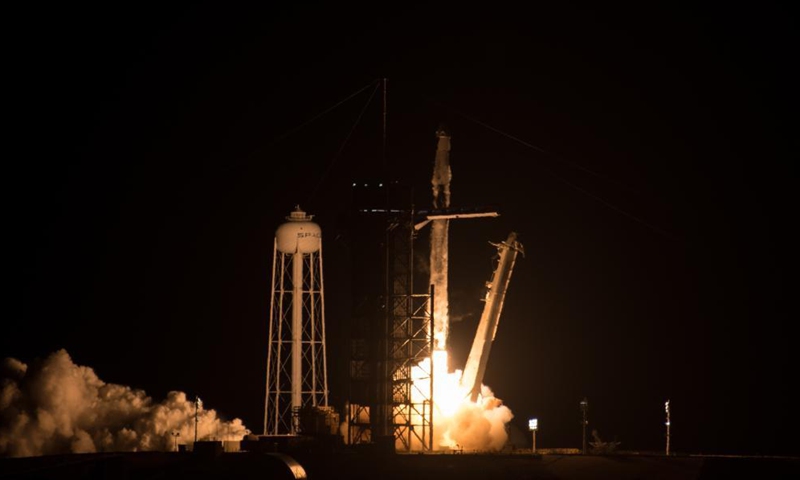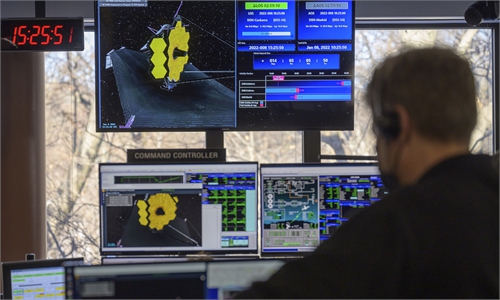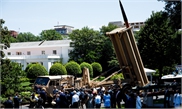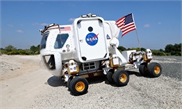
The Crew Dragon spacecraft carrying four astronauts from three countries launches from NASA's Kennedy Space Center in Cape Canaveral of Florida, the United States, April 23, 2021.Photo:Xinhua
The latest test of NASA's giant moon rocket SLS has been pushed back to allow for a SpaceX rocket to launch later this week, the US space agency announced Tuesday.The dress rehearsal for the giant Space Launch System had been scheduled for Friday at launch pad 39B at Cape Canaveral, Florida, at the same time as SpaceX's lift-off from pad 39A.
The test of the rocket, which is to return humans to the moon, is now expected to resume shortly after the take-off of the SpaceX flight, which is to carry three businessmen and a former astronaut to the International Space Station.
The 322-foot (98-meter) SLS rocket will remain on its launch pad while waiting.
In this final test before blast-off for the moon later in 2022, all the steps leading up to launch must be rehearsed, from filling the tanks to the final countdown, which will be stopped just before the engines fire.
The run-through started on Friday and was originally scheduled to end on Sunday, but NASA teams encountered "a whole myriad of technical challenges" as well as uncooperative weather on Saturday, said Mike Sarafin, the mission manager for the Artemis moon landing.
Among the problems encountered were four lightning strikes hitting the launch pad during a thunderstorm, which at least proved that the protection system had worked as planned.
But the problems were not "major issues," Sarafin said.
"We haven't run into any fundamental design flaws or design issues."
"We take pride in learning from these tests," he said, calling the ones already carried out in recent days "partially successful."
Artemis 1 will mark the first flight of the SLS, whose development has lagged years behind schedule.
AFP



